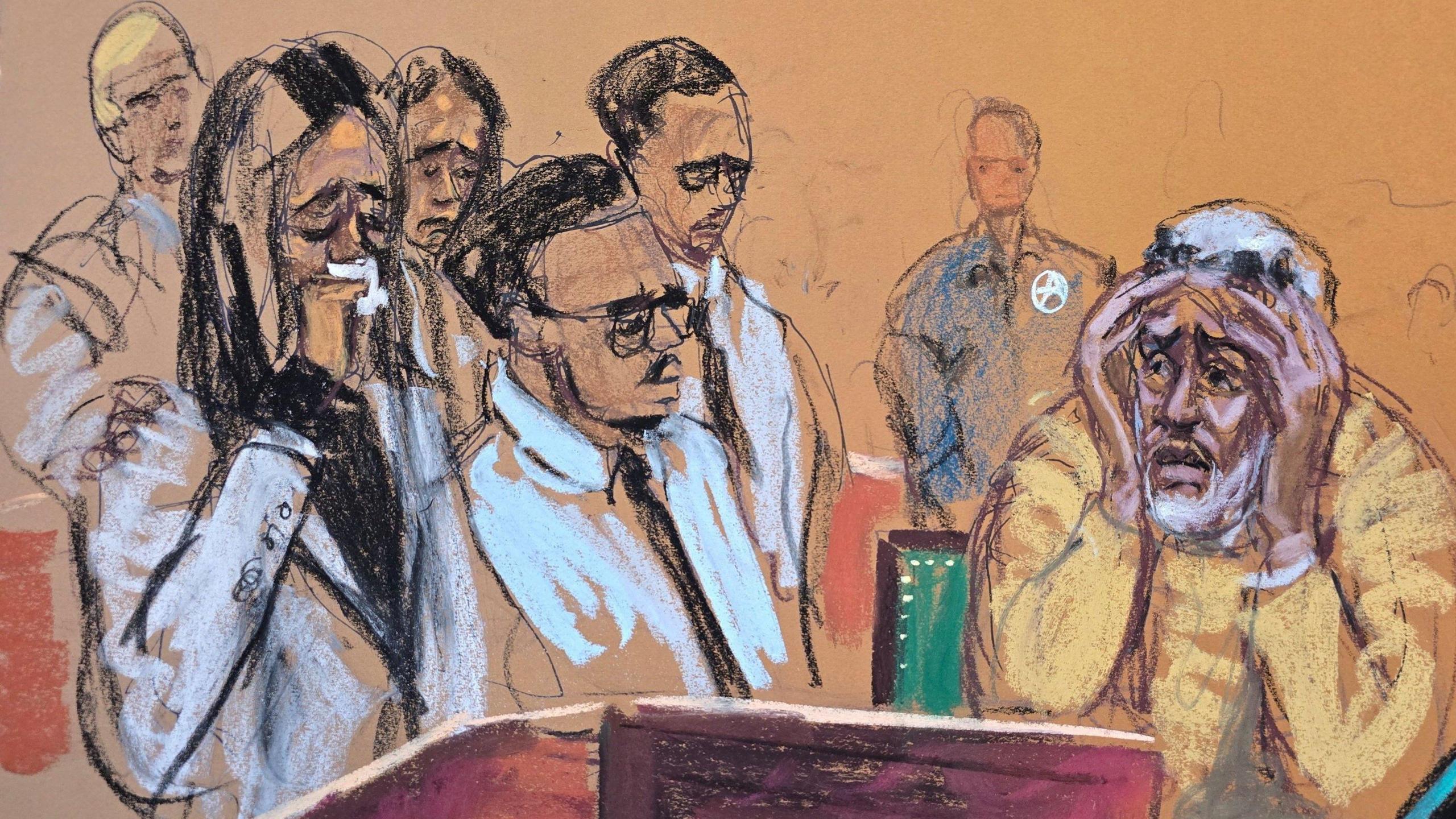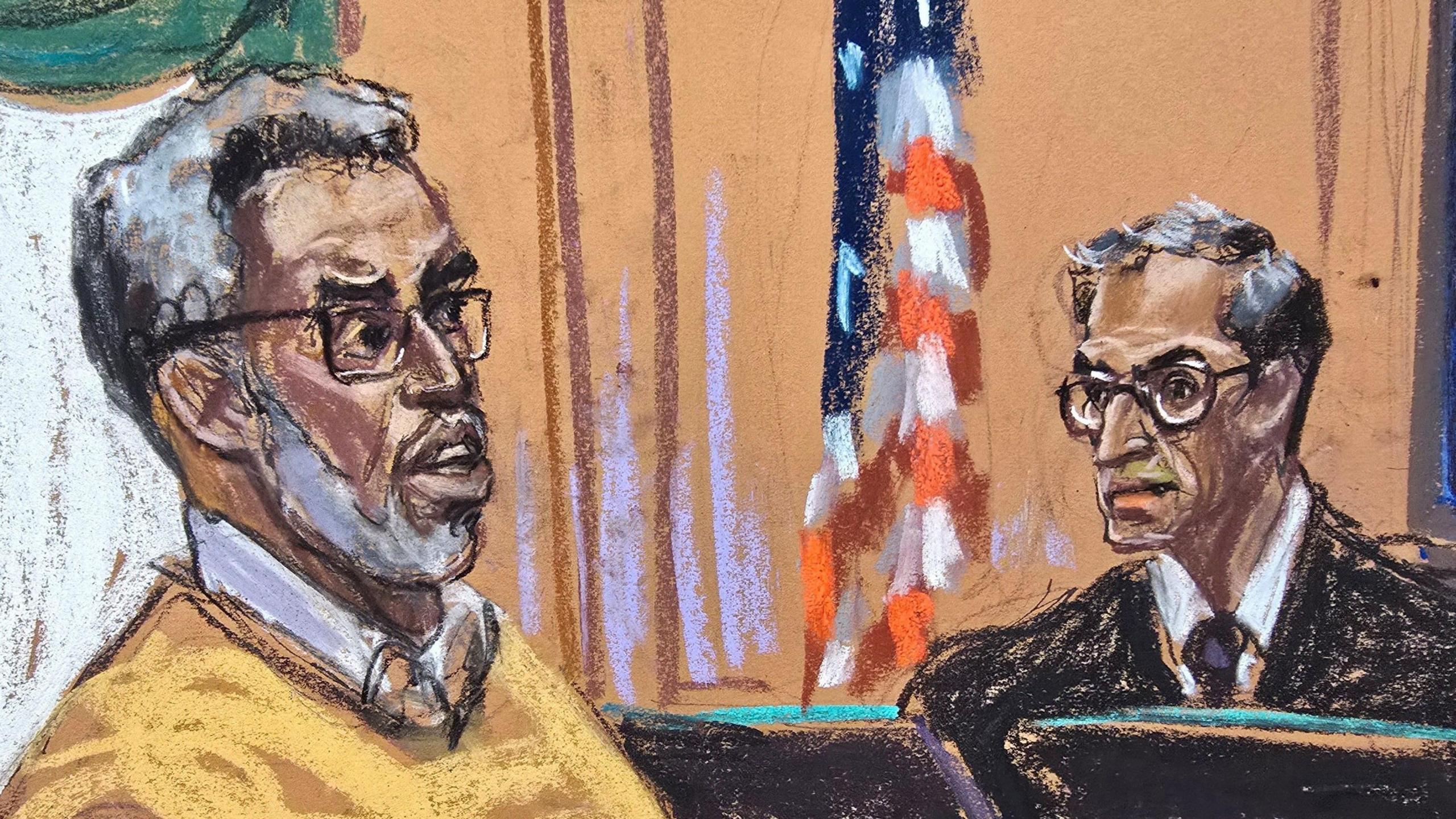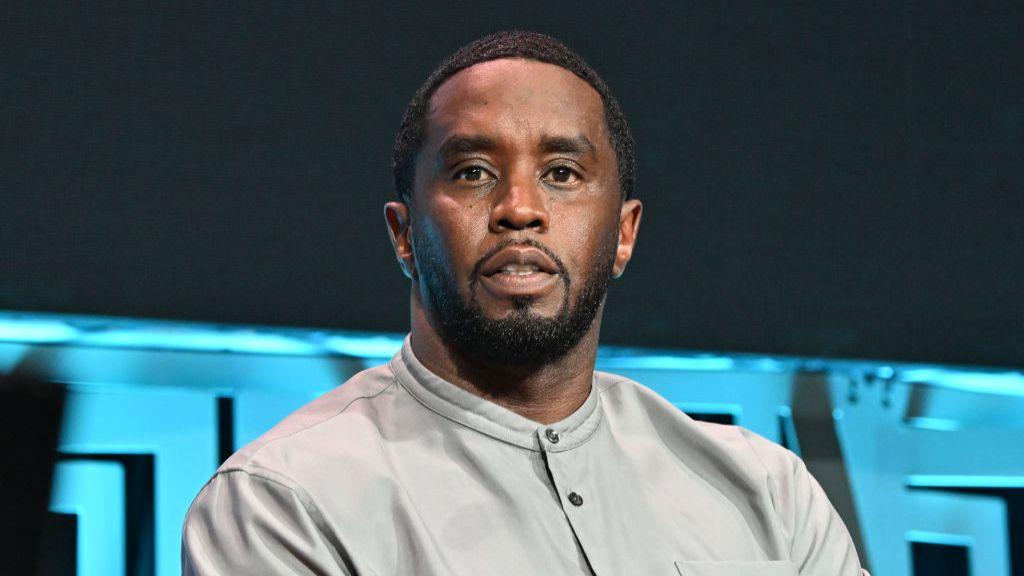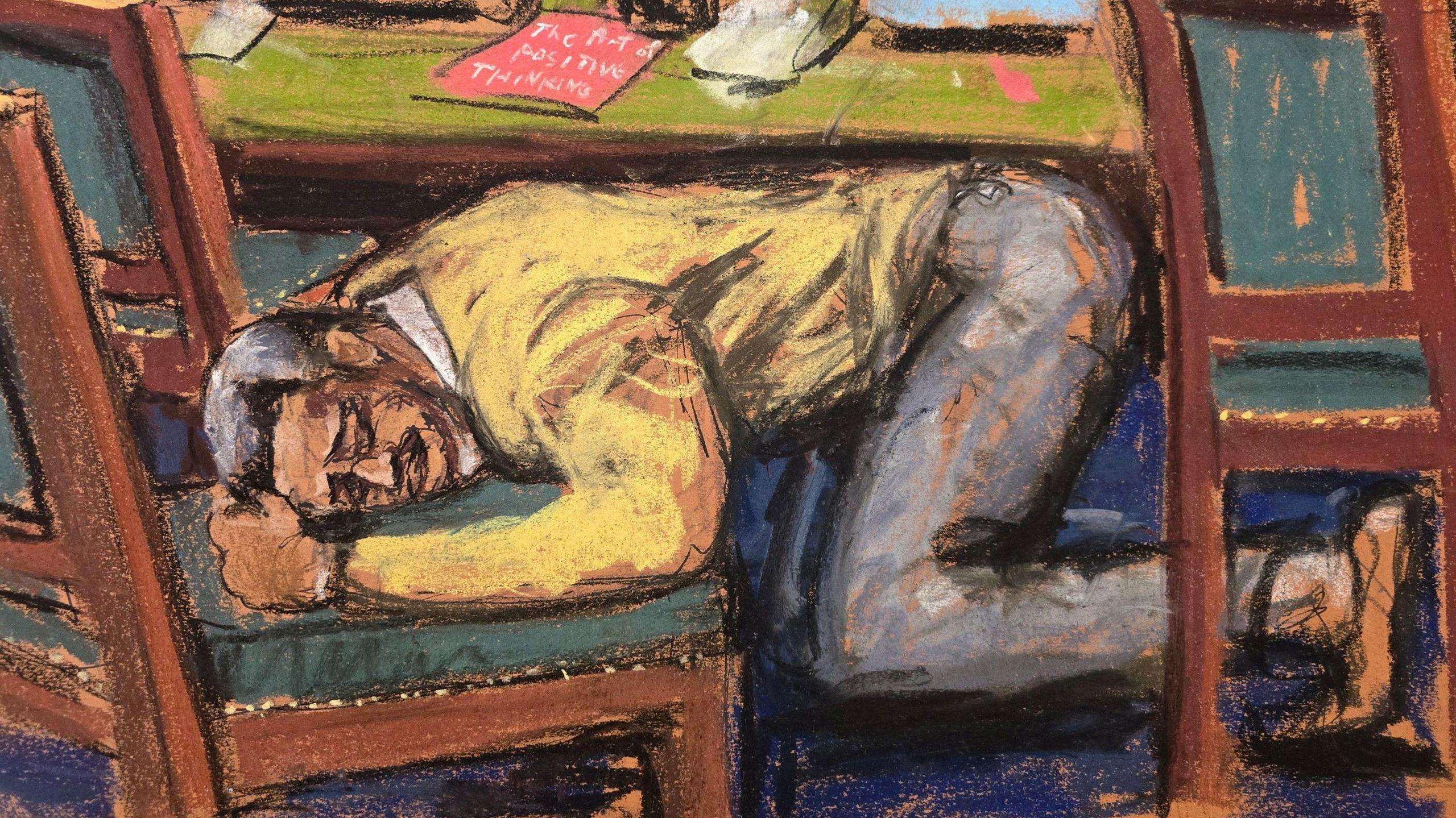Sean 'Diddy' Combs sentenced to more than four years in prison
Watch: Sean 'Diddy' Combs' family, attorneys arrive for his sentencing
- Published
Hip-hop mogul Sean "Diddy" Combs was sentenced to just over four years in prison on Friday after being convicted on prostitution-related charges involving his two ex-girlfriends.
Combs' attorneys argued for a 14-month sentence, saying their client is reformed after serving 13 months in a New York jail, but prosecutors wanted 11 years, citing his domestic violence history.
In addition to prosecutors detailing Combs' abuse, the court heard from several of Combs' children, some openly sobbing; defence attorneys who called him inspiring; and finally, an apologetic Combs himself.
In the end, Judge Arun Subramanian said a significant sentence was required as a deterrent, and to send a message.

Before the judge delivered the 50-month sentence, Combs addressed the court - his first public words since the trial began.
Combs apologised to his victims, specifically naming his two ex-girlfriends, Casandra Ventura, and "Jane", who testified under a pseudonym.
"My actions were disgusting, shameful, and sick," he said. "I got lost in excess, I got lost in my ego."
He went on to apologise to his mother and his children.
"I'm so sorry. They deserved better," he said, referring to his seven children, most of whom were in the courtroom.
Then he begged the judge for a second chance, saying he would never jeopardise time with his family again. "I ask your honour for mercy. I beg your honour for mercy," Combs said.
"I don't have nobody to blame but myself. I know that I've learned my lesson."
In the nearly two-month federal trial in New York City, prosecutors accused Combs of using his celebrity status and sprawling business empire to run a criminal enterprise and sex traffic his former girlfriends.
Prosecutors argued Combs sex trafficked women through "freak-offs", or encounters in which he would pay male escorts to have sex with his girlfriends while he watched and filmed.
The government argued Combs coerced the women into unwanted sexual encounters with drugs and physical violence.
Combs, 55, was found not guilty in July of the most serious charges against him, racketeering conspiracy and sex trafficking of his two ex-girlfriends, Ms Ventura and "Jane". He was convicted on two charges of transportation to engage in prostitution.

For most of Friday morning, Combs maintained a non-reactive demeanour, sitting back in his seat and listening quietly as prosecutors accused him of ruining his victims' lives.
Prosecutor Christy Slavik argued that the harsher sentence was more appropriate for the severity of his actions. A lighter sentence would "let the defendant get away with years of domestic violence and abuse," she said.
"Today is about accountability and justice," she said.
Citing victim statements and testimony from Ms Ventura and Jane Doe that detailed domestic violence in their relationships with Combs, she reminded the judge of photos the court saw of the two women's injuries they say Combs inflicted.
"He didn't need the money, his currency was control," the prosecutor says. "This is a defendant who will pose a danger at any age."
However, the defence argued that Combs "is not a pimp" and that the prostitution charges on which he was convicted did not apply. "All pimps share one aggravating factor," said attorney Jason Driscoll. "They make money."
The conviction was based on the Mann Act, passed in 1910, which criminalised transporting women and girls for "the purpose of prostitution or debauchery, or for any other immoral purpose." The main difference, Mr Driscoll said, is money, pointing out that Combs did not benefit financially from the offences.
The defence painted Combs as reformed, describing his positive contributions at the jail in Brooklyn, New York, where he's being held and citing "untreated trauma and a ferocious drug addiction" as factors in his behaviour.
"Mr Combs personally inspired me," defence attorney Nicole Westmoreland told the court, choking back tears. She talked about Combs starting his own record label and clothing line, which she said also inspired other black entrepreneurs and musicians.
After spending 13 months in jail, Combs was "remorseful," said Ms Westmoreland. "Your honour, he gets it, simply put."
Combs' children - some sobbing - also vouched for his transformation in prison. In possibly the most emotional part of the day, one called him a "changed man" and another asked for a "second chance" for his father.
Combs looked on, appearing to hold back tears and occasionally burying his face in his hands.
"In front of you and in front of us is a changed man. He has evolved, something we haven't seen in 15 years," said Combs' son Quincy Brown.
Delila Combs, 18, pleaded: "We can't watch our baby sister grow up fatherless the same way we grew up motherless... Please, please give our family the chance to heal."
Afterwards Judge Subramanian thanked them, saying they would help him in his decision.
Combs will get credit toward his 50-month term for the roughly 13 months he has served in jail before and during the trial. He also will be required to pay a $500,000 fine.
After the hearing, Combs' attorney Marc Agnifilo said the legal team is planning to appeal the decision.
In his sentence, the judge said Combs' actions were more than being a consumer of prostitution, like the defence had claimed, and that he was not convinced Combs would not reoffend if released.
The defence played a 15-minute video highlighting Combs' achievements, and Judge Subramanian acknowledged that he considered his involvement with charities and helping the black community, and his deep family ties.
But he rejected the defence's portrayal of his relationships with Ms Ventura and Jane as intimate and consensual. "You abused them, physically, emotionally and psychologically," he said.
Both women had trauma that will last a lifetime, the judge said. "You had the money and the power to keep it going," he said. "This was subjugation."
"This is the reality of what happened."


